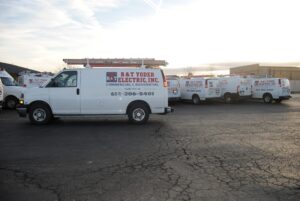
Ensure safety by consulting an electrician for proper grounding and GFCIs near the pool. Use outdoor-rated equipment and maintain distance from water sources. Select components like pump, lighting, and heater designed for pool use. Map out placement for efficient circulation and lighting. Hire a qualified electrician familiar with local codes for installation. Obtain necessary permits for excavation, electrical, and plumbing work. Display permits and undergo inspections for compliance. Implementing these steps is crucial to safeguard your pool’s electrical system, ensuring both safety and efficiency.
Electrical Safety Guidelines
When installing a pool, ensuring strict adherence to electrical safety guidelines is paramount to safeguarding your property and loved ones. Before beginning any electrical work for your pool installation, it is crucial to consult with a qualified electrician to ensure compliance with local building codes and safety standards. One of the primary considerations is the proper grounding of all electrical components to prevent the risk of electric shock. This includes bonding all metallic elements within and around the pool area to create a safe and uniform electrical potential.
Furthermore, it is essential to install ground fault circuit interrupters (GFCIs) for all outlets near the pool to quickly disconnect power in case of an electrical fault. All electrical equipment used in and around the pool must be specifically designed for outdoor and wet conditions to prevent hazards. Additionally, maintaining a safe distance between electrical wiring and water sources is crucial to avoid any potential risks of electric shock. By following these electrical safety guidelines diligently, you can enjoy your pool with peace of mind, knowing that you have taken the necessary precautions to protect your property and loved ones.
Choosing the Right Electrical Components
Selecting the appropriate electrical components for your pool installation requires careful consideration and adherence to specific technical requirements. When choosing the right electrical components, it is essential to prioritize safety and functionality. Begin by selecting a suitable pool pump that meets the power requirements of your pool size and features. Ensure the pump is equipped with a ground fault circuit interrupter (GFCI) for added protection against electrical hazards. Next, opt for a high-quality pool lighting system that is designed for underwater use and meets the necessary voltage specifications.
Additionally, selecting a reliable pool heater with the correct voltage and amperage capacity is crucial for maintaining the desired water temperature efficiently. It is important to choose durable electrical wiring that is specifically rated for outdoor and wet conditions to prevent corrosion and ensure longevity. Lastly, consider installing a timer or automation system to regulate the operation of your pool equipment efficiently. By carefully selecting the right electrical components, you can ensure a safe and enjoyable pool experience for years to come.
Planning the Electrical Layout
To ensure a well-organized and efficient electrical layout for your pool installation, prioritize mapping out the placement of key components such as the pump, lighting system, heater, and wiring according to safety and functionality requirements. Begin by locating the pool pump near the pool equipment area to facilitate proper water circulation. Place the lighting system strategically around the pool perimeter for even illumination, taking care to install them at safe distances from the water’s edge to prevent any electrical hazards. Coordinate the heater placement near the pump for efficient heating and consider integrating a timer for energy-saving operations. Plan the wiring layout meticulously, ensuring proper grounding and waterproof connections to safeguard against moisture-related issues.
When designing the electrical layout, factor in the location of control panels for easy access and safe operation. Separate circuits should be designated for different pool components to prevent overloading and facilitate maintenance. It is crucial to adhere to all local building codes and regulations during the planning phase to guarantee a safe and compliant electrical layout for your new pool installation.
Hiring a Qualified Electrician
Consider hiring a licensed electrician with expertise in pool installations to ensure compliance with safety standards and proper electrical connections. When selecting an electrician, verify their credentials, experience with pool electrical work, and familiarity with local building codes. A qualified electrician will assess your pool’s electrical needs, including equipment such as pumps, heaters, and lighting, to determine the appropriate wiring and load requirements. They will also ensure that all electrical components are installed according to manufacturer specifications and in compliance with National Electrical Code (NEC) regulations.
A skilled electrician will be able to troubleshoot and address any potential issues to prevent electrical hazards and ensure the safety of your pool area. Additionally, they will help you choose the right electrical components that are suitable for outdoor use and can withstand exposure to water and other environmental factors. By hiring a knowledgeable electrician, you can have peace of mind knowing that your pool’s electrical system is installed correctly and operates safely for years to come.
Obtaining Necessary Permits
Ensure that the necessary permits for your pool installation project are obtained in compliance with local regulations and building codes. Before starting any work, it is crucial to check with your local building department to determine the specific permits required for installing a pool on your property. Typically, permits are needed for excavation, electrical work, plumbing, and the actual pool installation. The permit process may involve submitting detailed plans, including electrical layouts, plumbing diagrams, and structural designs for approval. It is essential to work closely with your electrician and pool installer to ensure that all necessary documentation is in order before applying for permits. Failure to obtain the required permits can lead to costly fines and delays in your project. Once the permits are obtained, make sure to display them prominently at the job site as inspections may be required at various stages of the pool installation process to ensure compliance with safety standards and regulations.







